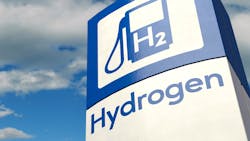DOE Announces $62 Million for 20 Projects Across 15 States to Deploy Next-Generation Clean Hydrogen Technologies
The U.S. Department of Energy (DOE) has announced about $62 million for 20 projects across 15 states to accelerate the research, development, demonstration, and deployment of next-generation clean hydrogen technologies.
The projects will improve crucial elements of hydrogen fueling infrastructure, develop and demonstrate hydrogen-powered container-handling equipment for use at ports, and improve processes essential to the efficient, timely, and equitable deployment of hydrogen technologies. The selected projects are innovative efforts to improve community engagement and ensure the benefits of the clean energy are utilized by all Americans.
The aim is highlighted in the U.S. National Clean Hydrogen Strategy and Roadmap, which is being implemented through a whole-of-government approach coordinated by the Hydrogen Interagency Task Force. The investments will not only support many end-uses for clean hydrogen but also become an important part of the DOE Hydrogen Program’s broad portfolio of research, development, and demonstration activities. They will work together with DOE’s Regional Clean Hydrogen Hubs and tax incentives.
By helping develop diverse, domestic clean energy pathways across multiple sectors of the economy, clean hydrogen will strengthen American energy independence and add to the nearly 16 million jobs across the American economy since January 2021.
DOE’s Hydrogen and Fuel Cell Technologies Office (HFTO) will manage the selected projects, which span the following five topic areas:
- Components for Hydrogen Fueling of Medium- and Heavy-Duty (MD/HD) Vehicles (four projects, $8.5 million) - Selected projects will develop advanced components to enable gaseous and liquid hydrogen fueling for medium- and heavy-duty hydrogen-powered vehicles.
- Standardized Hydrogen Refueling Station of the Future (four projects, $40 million)- Selected projects will develop and demonstrate a low-cost, standardized, and replicable advanced hydrogen fueling station of the future, one that meets the needs of commercial-scale MD/HD truck fueling.
- Hydrogen Fuel Cell-Powered Port Equipment (one project, $2.5 million) - Selected project will design, develop, and demonstrate a hydrogen fuel cell top loader (for handling containers) and a mobile refueler at the Port of Oakland.
- Enabling Permitting and Safety for Hydrogen Deployment (seven projects, $7 million) - Selected projects will identify the primary challenges to siting, permitting, and installation across the value chain from hydrogen production through end-use, and explore opportunities to address them.
- Equitable Hydrogen Technology Community Engagement (four projects, $4 million) - Selected projects will improve the capacity of DOE and DOE-funded projects to conduct effective community-engagement activities. With funding from HFTO and DOE’s Office of Fossil Energy and Carbon Management, these projects will engage directly with disadvantaged communities to help DOE gain a better understanding of their concerns and provide them with important information about hydrogen and related technologies, as well as develop lessons learned and best practices on Community Benefits Plans.
All of the projects in the first four topic areas are expected to develop and implement comprehensive Community Benefits Plans (CBPs), while the remaining projects in the last topic area will focus on effectively developing CBPs as part of their community engagement efforts. CBPs ensure selectees to engage with community and labor stakeholders for creating jobs and improve the well-being of residents and workers.
In support of the Biden-Harris Administration's Justice40 initiative, over $14 million of the announced funding is for community benefits and over 20 minority serving institutions are listed as project partners. While seven of the selected projects will focus on the permitting and safety of hydrogen infrastructure, four additional projects will develop best practices for community benefits plans by engaging with local disadvantaged communities.
